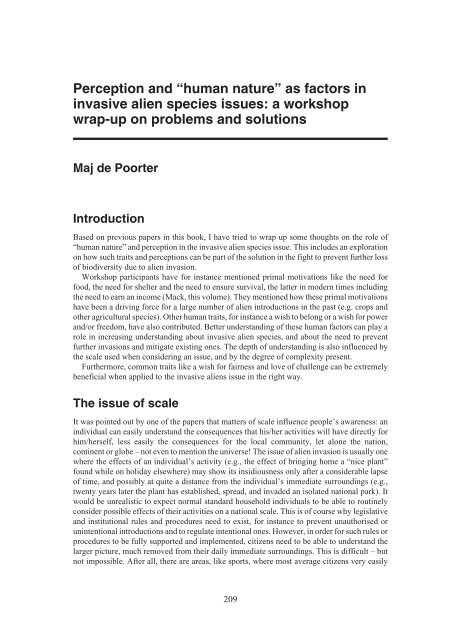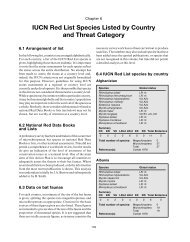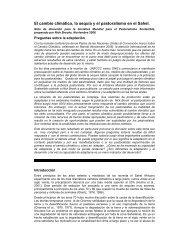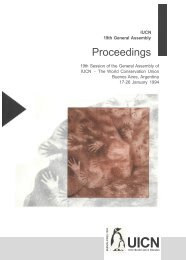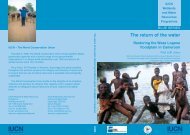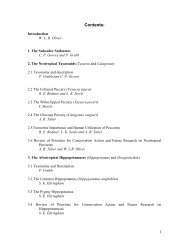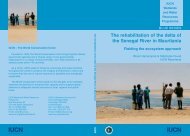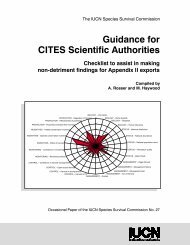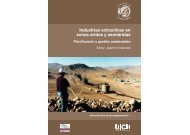Alien Species.vp - IUCN
Alien Species.vp - IUCN
Alien Species.vp - IUCN
You also want an ePaper? Increase the reach of your titles
YUMPU automatically turns print PDFs into web optimized ePapers that Google loves.
Perception and “human nature” as factors in<br />
invasive alien species issues: a workshop<br />
wrap-up on problems and solutions<br />
Maj de Poorter<br />
Introduction<br />
Based on previous papers in this book, I have tried to wrap up some thoughts on the role of<br />
“human nature” and perception in the invasive alien species issue. This includes an exploration<br />
on how such traits and perceptions can be part of the solution in the fight to prevent further loss<br />
of biodiversity due to alien invasion.<br />
Workshop participants have for instance mentioned primal motivations like the need for<br />
food, the need for shelter and the need to ensure survival, the latter in modern times including<br />
the need to earn an income (Mack, this volume). They mentioned how these primal motivations<br />
have been a driving force for a large number of alien introductions in the past (e.g. crops and<br />
other agricultural species). Other human traits, for instance a wish to belong or a wish for power<br />
and/or freedom, have also contributed. Better understanding of these human factors can play a<br />
role in increasing understanding about invasive alien species, and about the need to prevent<br />
further invasions and mitigate existing ones. The depth of understanding is also influenced by<br />
the scale used when considering an issue, and by the degree of complexity present.<br />
Furthermore, common traits like a wish for fairness and love of challenge can be extremely<br />
beneficial when applied to the invasive aliens issue in the right way.<br />
The issue of scale<br />
It was pointed out by one of the papers that matters of scale influence people’s awareness: an<br />
individual can easily understand the consequences that his/her activities will have directly for<br />
him/herself, less easily the consequences for the local community, let alone the nation,<br />
continent or globe – not even to mention the universe! The issue of alien invasion is usually one<br />
where the effects of an individual’s activity (e.g., the effect of bringing home a “nice plant”<br />
found while on holiday elsewhere) may show its insidiousness only after a considerable lapse<br />
of time, and possibly at quite a distance from the individual’s immediate surroundings (e.g.,<br />
twenty years later the plant has established, spread, and invaded an isolated national park). It<br />
would be unrealistic to expect normal standard household individuals to be able to routinely<br />
consider possible effects of their activities on a national scale. This is of course why legislative<br />
and institutional rules and procedures need to exist, for instance to prevent unauthorised or<br />
unintentional introductions and to regulate intentional ones. However, in order for such rules or<br />
procedures to be fully supported and implemented, citizens need to be able to understand the<br />
larger picture, much removed from their daily immediate surroundings. This is difficult – but<br />
not impossible. After all, there are areas, like sports, where most average citizens very easily<br />
209


